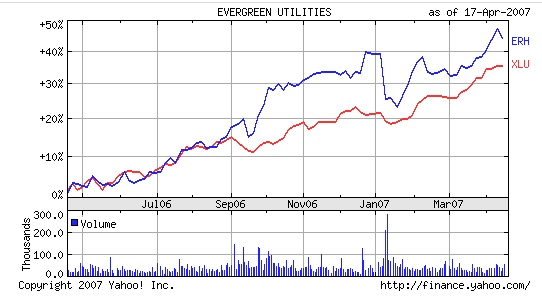ClosedEnd Funds What Are ClosedEnd Funds
Post on: 24 Апрель, 2015 No Comment

Are Closed-End Funds the Same as Mutual Funds?
You can opt-out at any time.
Please refer to our privacy policy for contact information.
Closed-end funds are often confused with, and mistakenly called, mutual funds. A major difference is that closed-end funds behave more like a stock — the market value is driven by supply and demand for the shares. On the other hand, an open-end mutual fund continually issues new shares to investors and does not trade on an exchange.
Perhaps the best way to understand a closed-end fund is to compare it with an open-end mutual fund.
Open-End Mutual Funds vs. Closed-End Funds
You can think of a mutual fund as “open-ended” because the cash flow door — both into and out of the fund — is always open. In other words, the portfolio manager continues to invest new cash from investors, and the fund company continues to offer new shares of the fund to new investors.
You can think of a closed-end fund, then, as “closed-ended” because the cash flow door — into and out of the fund — is always (with a few exceptions) closed. The manager only invests a fixed amount of cash that was raised in an initial public offering of the fund’s shares. If you want to buy shares of the fund, you buy the shares from another investor via a stock exchange. The number of fund shares do not fluctuate based on investor demand.
Similarities in Closed-End Funds and Mutual Funds

Like mutual funds, closed-end funds are:
- A diversified portfolio of stocks, bonds, or a combination of the two
- Professionally managed by an investment advisor
- Either actively or passively managed
- Required to distribute capital gains and dividends to shareholders
- Regulated by the U.S. Securities and Exchange Commission
Differences in Closed-End Funds and Mutual Funds
- Are traded on a stock exchange (NSYE) or over-the-counter (NASDAQ)
- Are bought and sold at market price versus the underlying securities’ value
- Are valued based on supply and demand for the fund
- Can be purchased and sold throughout the trading day
- Use leverage (borrow cash to invest in more assets) to enhance their returns
If you want to learn more about the details of closed-end funds, take a closer look at the product in CEFs: A Closer Look at Closed-End Funds.














